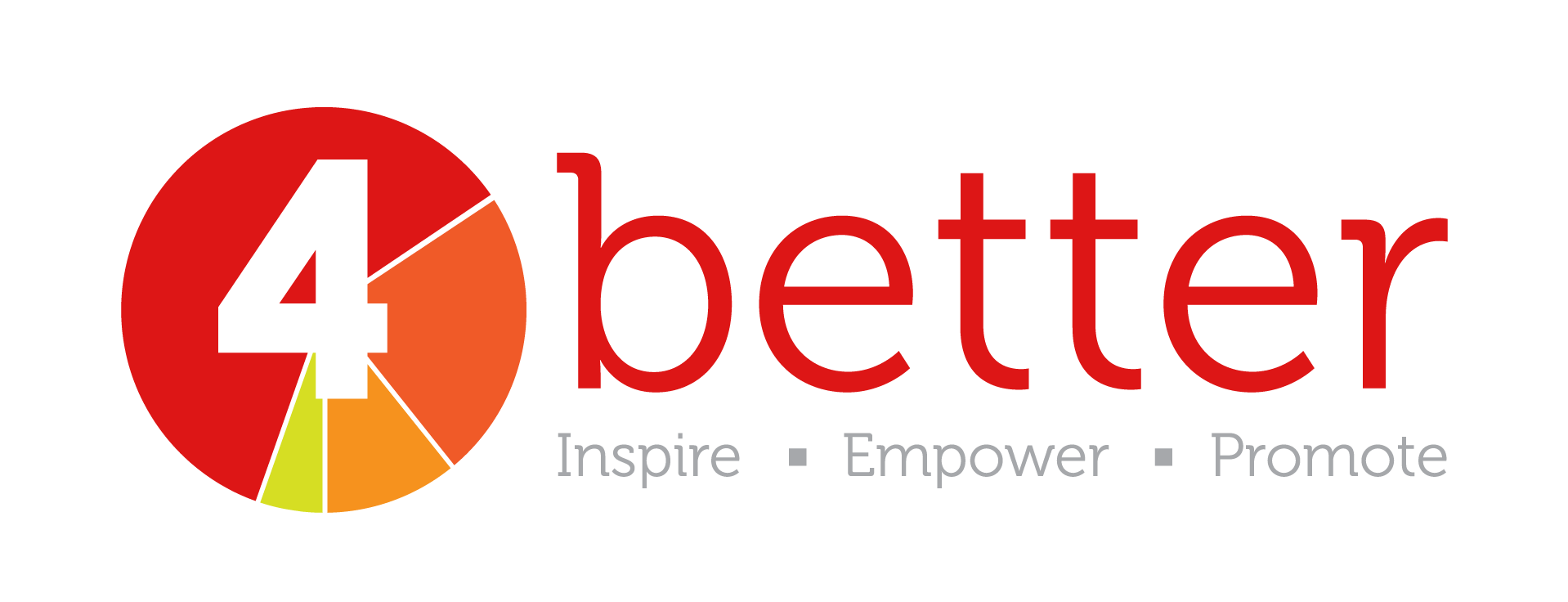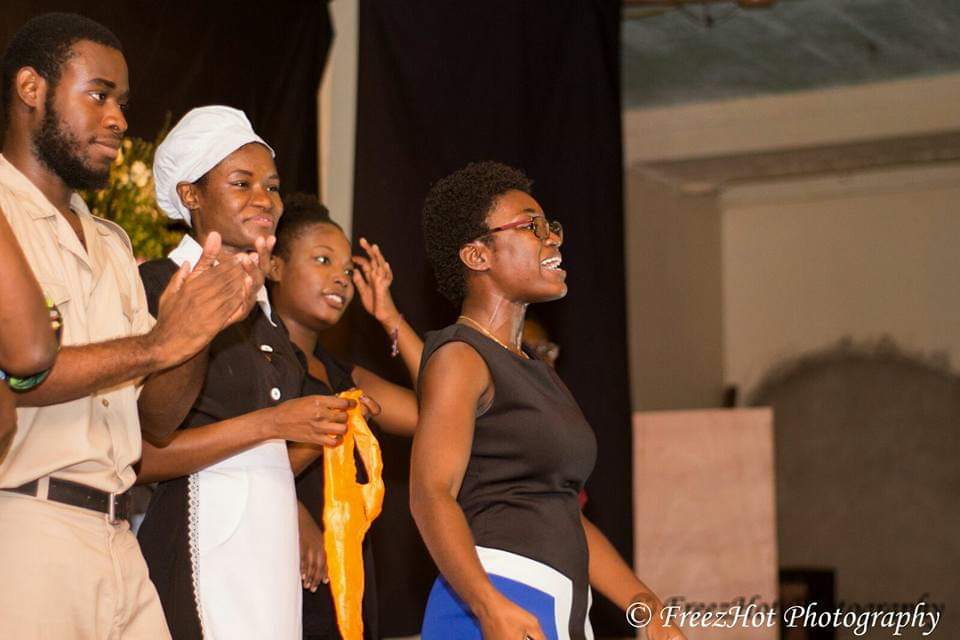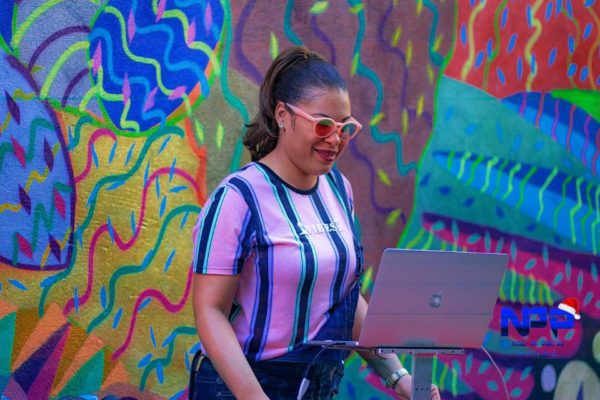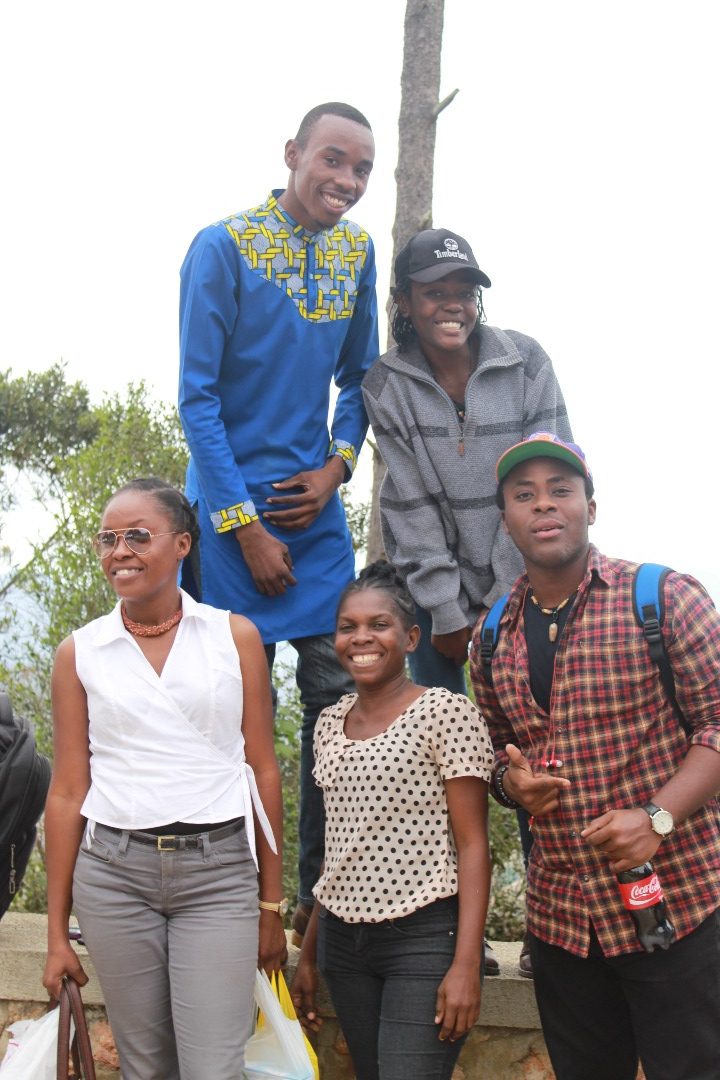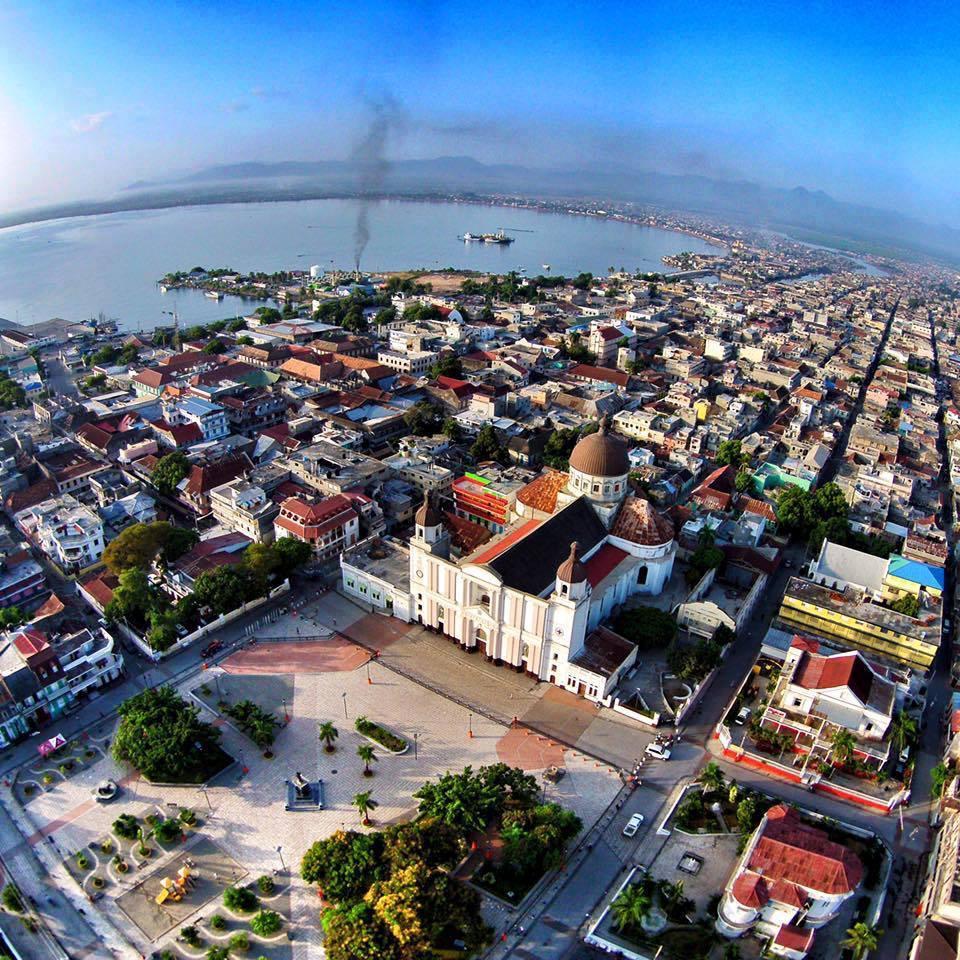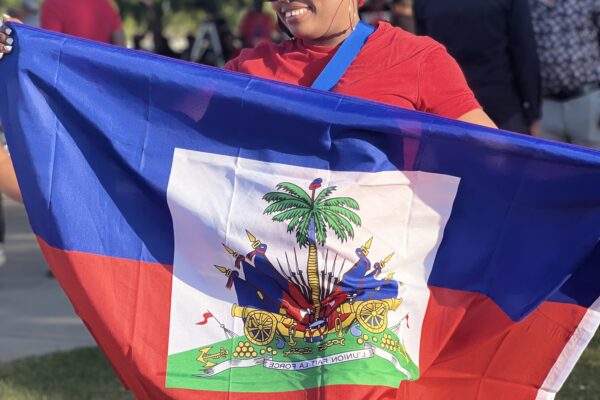
Corinne Joachim Sanon Symietz: I Didn’t Want To Wait Until I Retire To Have A Foundation Or Create One More Charity
Corinne J. Sanon Symietz was born in the U.S., but she grew up in Haiti with her family. Growing up in Haiti, she was always aware of the poverty around her, and mindful that her family sometimes had to support the housekeeping staff with medical bills or education fees for their children.
After high school, she went to college in the U.S. where she attended the University of Michigan to receive a Bachelor’s in Industrial Engineering. Then, she went on to the University of Pennsylvania, the Wharton School, to obtain her MBA as she felt that these skills would help her later on when she would create her business. She tells us more of how she starts Les Chocolateries Askanya, the hurdles, and accomplishments as she prepared this piece with 4Better. We invite you to read her story in the following lines.
My education, my work experience (and my readings, my travels, etc.) were, to me, pieces of the puzzle toward my entrepreneurial goals. By the time I turn 30, I decided that it was time to start my business, Les Chocolateries Askanya. I wanted to create revenues for farmers. The majority of Haitian farmers are “subsistence farmers” and make little revenues.
My primary goal was to transform a crop – any Haitian crop – to create revenues for farmers. When I start researching, I looked into mango, orange, vetiver, coffee, cacao. When I got to cacao, I realize that Haitian fermented and dried cacao was very well regarded in the world and used in very high-end bean-to-bars chocolate done in French by companies such as Bonnat, Valrhona. Therefore, I decided to create a full product in Haiti.
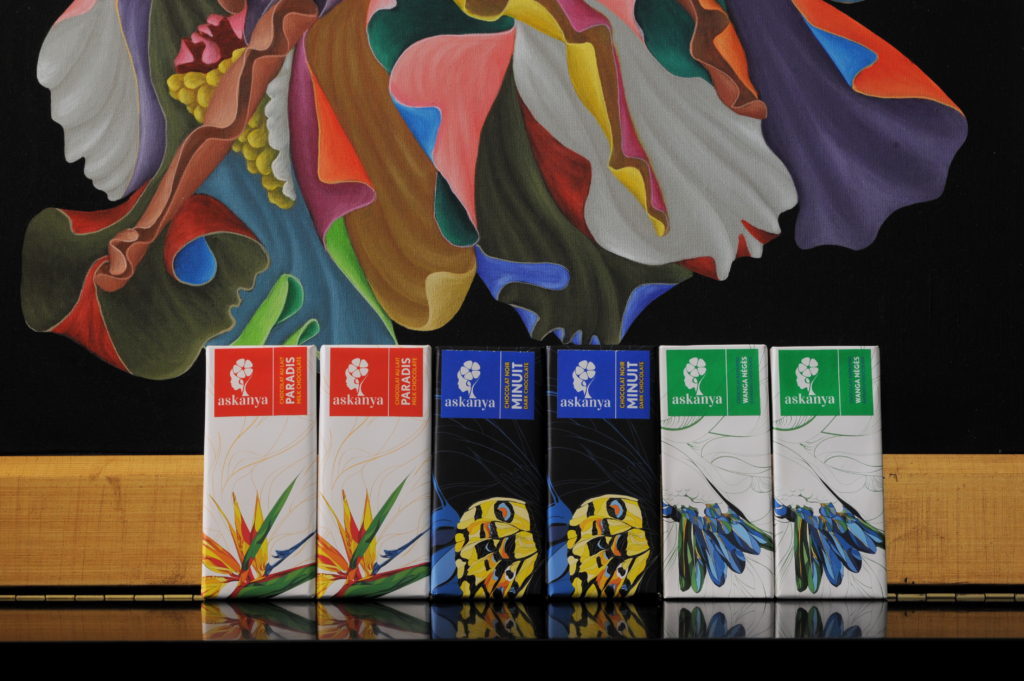
I started the business with my husband and a Haitian-American college friend who was our first Head of Production. Because all three of us were not Haitian citizen, I also asked another friend Gentilé to own a share so we could do the paperwork in Haiti (as required by Haitian law) as I wanted the company to be a real Haitian company and incorporated in Haiti.
Fast-forward, we set up the business (Oct 2014 – May 2015): the Head Production decided to step down, and the three of us bought her part and re-assigned the shares – my husband, and I keep about 80% ownership and Gentilé with about 20%.
Growing up in Haiti, I knew I was one of the lucky ones. I felt I was given a lot and knew I needed to give back. I wanted to make a difference. I didn’t want to wait until I retire to have a foundation or create one more charity. I specifically wanted to help others earn and make their own money and spend it on whatever they wanted to spend it on.
I certainly believe my professional experience helped with my entrepreneurial ventures. I have worked as an Industrial Engineer intern at L’Oreal USA, Northrop Grumman, a classic industrial engineer at Hormel Foods, a Consultant for Accenture and RTX Technology Partners.

The first challenge in starting Askanya was financing. We couldn’t readily get a business loan in Haiti, so we started by using our savings, some of our credits cards and credit line based in the US. Beginning in January 2017, we stopped relying on our personal funds. Askanya was on its own.
The second one is the lack of infrastructure. In Ouanaminthe where our chocolate factory is located, we don’t have reliable grid power – therefore a generator, with its additional costs, is necessary and represent a significant portion of our overhead expenses. Luckily, the state water company is reliable in our town. Besides, to get to the farmers and their cacao, it takes us about 4 hours to reach 40 miles.
Currently, we have ten full-time employees and twenty-five part-time contractors. About seven hundred farmers provide us with unprocessed sugar cane called locally rapadou and the cacao beans that we ferment, dry and then use to make our chocolate bars.
There are several accomplishments I am proud of such as:
- Top 50 Cacao in the World Award for the quality of our beans at the Salon du Chocolat in Paris (Oct 2017)
- Sustainability Award at the NW Chocolate Festival (Nov 2017)
- Top 25 Entrepreneurial ventures changing the world by Cadillac and CoolHunting (July 2015)
- And recently being named Top Influencer of the Haitian Agricultural Sector by Haiti Tech Summit
Nevertheless, in the end, it’s all about reaching my goal of creating, a finished product manufactured in Haiti and using Haitian raw materials that are bought from Haitian farmers – providing them an outlet for their crops.
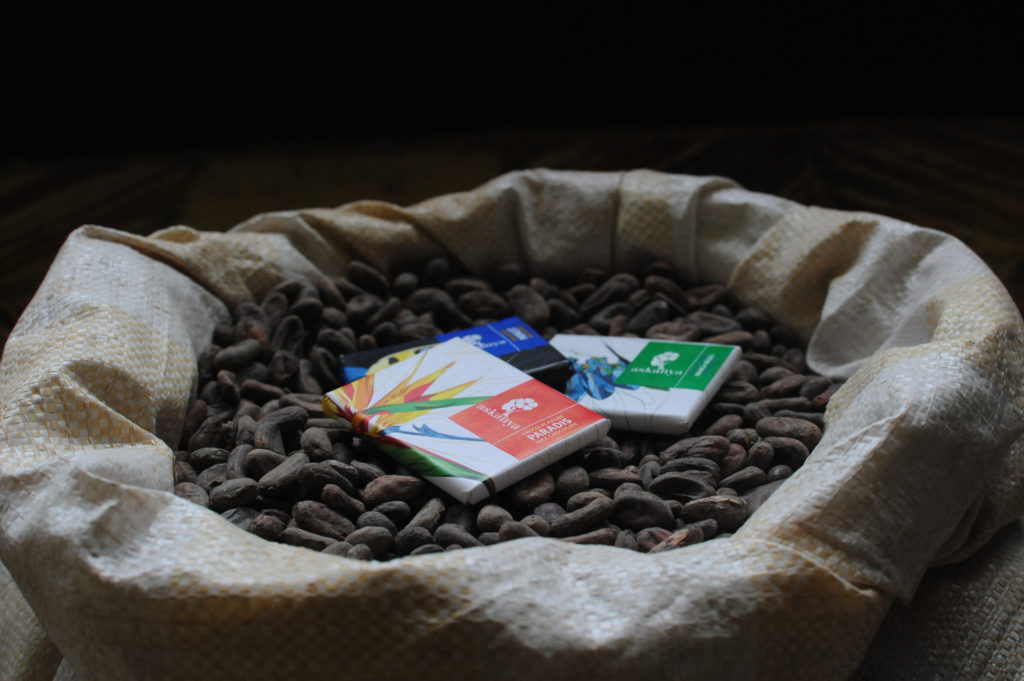
Before starting the business I thought I would be investing at most 20,000 U.S. dollars to start the business, but it costs me way more than I thought (close to 10 times, in reality). Starting a business in Haiti is costly. Imagine, to register a company in Haiti, one needs about 2,000 U.S dollars. How do you expect a young person who is just started, right out of school, to have $2,000 U.S dollars just to register a business, when the per capita income is $800?
The company is contributing to economic development in Haiti by putting real cash in the hands of the farmers by buying their crops and potentially turning them into mid-level Haitian in term of revenues. We have ten full-time employees who now have consistent revenue opportunity thanks to their salary, and we do our best to provide them a good working environment.

Three specific things are missing in my opinion for entrepreneurs to evolve in Haiti, and they are not just going to help entrepreneurs but also every citizen of the country.
First, electricity is a big problem. Whether you have a house or a business, you need electricity to live or produce. Without power, a company might not be able to produce affordably.
The second issue is roads (or public access road). Right now, it takes us about four hours to reach the farmers who are less than 40 miles away. We must cross several rivers, and the farmers on their sides need to walk often a long way to reach our meeting point. Better national public road and bridge infrastructure could help us reach the remote farmers in less time and reduce our cost of purchases.
The third issue is the legal system. Currently, it’s not easy or straightforward to bring a complaint and get reparations if you are wrong as a business owner (whether a client does not pay you, a supplier provides to you the wrong part, or the erratic electricity destroy a piece of equipment, etc.). Many people are afraid to invest because they have no straightforward enforceable recourse, in the event a situation arises.

To finish, the best three words to describe Les Chocolateries Askanya are Pride. 100% Natural, Local. We wanted to create a product that Haitian would be proud to eat and share; that chocolate aficionados worldwide would fall in love with thanks to its natural ingredients, preferably from Haiti and that would highlight element of Haitian fauna and flora in the packaging.

